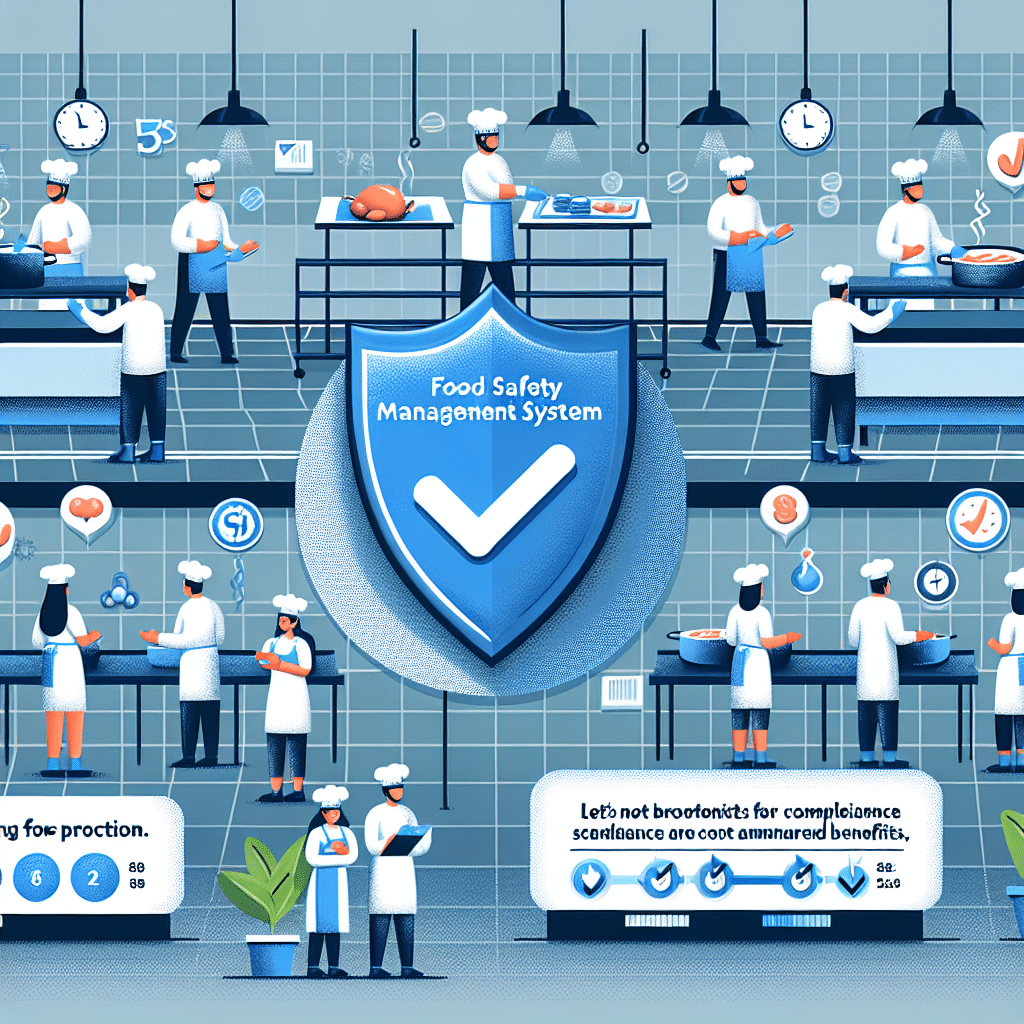Food Safety Management System: Significance and Pros
-
Table of Contents
- Food Safety Management Systems: Key to Ensuring Public Health
- Understanding Food Safety Management Systems
- Significance of Food Safety Management Systems
- Pros of Implementing Food Safety Management Systems
- Enhanced Food Safety
- Improved Efficiency and Consistency
- Increased Consumer Confidence
- Global Trade Opportunities
- Streamlined Training and Communication
- Continuous Improvement
- Statistics Supporting the Effectiveness of FSMS
- Conclusion: The Indispensable Role of Food Safety Management Systems
- ETprotein: Your Partner for High-Quality Protein Products
Food Safety Management Systems: Key to Ensuring Public Health

Food safety is a critical concern for consumers, businesses, and regulatory agencies worldwide. With the global food supply chain becoming increasingly complex, the importance of implementing robust Food Safety Management Systems (FSMS) has never been more pronounced. These systems are designed to prevent, eliminate, or reduce food safety hazards to acceptable levels, ensuring that the food we consume is safe and of high quality. This article explores the significance of FSMS and the advantages they offer to the food industry and public health.
Understanding Food Safety Management Systems
Food Safety Management Systems are structured frameworks used by food businesses to manage food safety risks and ensure that food products meet legal and consumer safety expectations. These systems are based on principles outlined by the Codex Alimentarius Commission, which include Good Manufacturing Practices (GMP), Hazard Analysis and Critical Control Points (HACCP), and the ISO 22000 standard for food safety management.
Significance of Food Safety Management Systems
The implementation of FSMS is crucial for several reasons:
- Consumer Protection: FSMS help protect consumers from foodborne illnesses and contaminants that can cause serious health issues.
- Compliance with Regulations: FSMS ensure that food businesses comply with national and international food safety regulations, avoiding legal repercussions and product recalls.
- Brand Reputation: By consistently providing safe food, businesses can build and maintain consumer trust and a strong brand reputation.
- Market Access: A certified FSMS can be a prerequisite for entering certain markets, thus facilitating trade and business growth.
- Cost Reduction: By preventing contamination and foodborne illness outbreaks, FSMS can save businesses from costly recalls and associated losses.
Pros of Implementing Food Safety Management Systems
Adopting FSMS offers a multitude of benefits to food businesses and the industry as a whole:
Enhanced Food Safety
FSMS provide a systematic approach to identifying and managing food safety hazards, significantly reducing the risk of contamination and ensuring the safety of food products.
Improved Efficiency and Consistency
Standardized procedures and practices lead to more efficient operations, consistent product quality, and reduced waste due to spoilage or non-compliance.
Increased Consumer Confidence
Consumers are more likely to trust and remain loyal to brands that demonstrate a commitment to food safety through certification and transparent practices.
Global Trade Opportunities
FSMS certifications are often recognized internationally, enabling businesses to expand their market reach and compete in the global marketplace.
Streamlined Training and Communication
Clear guidelines and protocols facilitate better training for staff and improve communication within the company and with suppliers and customers.
Continuous Improvement
FSMS frameworks encourage ongoing evaluation and improvement of food safety practices, keeping businesses up-to-date with the latest safety standards and technologies.
Statistics Supporting the Effectiveness of FSMS
Research and data underscore the positive impact of FSMS on food safety:
- A study by the Global Food Safety Initiative (GFSI) found that companies with certified FSMS reported a 22% reduction in their food safety incidents.
- According to the Centers for Disease Control and Prevention (CDC), the implementation of HACCP systems has led to a significant decline in cases of foodborne illnesses associated with meat and poultry products in the United States.
- The ISO Survey of Certifications indicates a year-on-year increase in ISO 22000 certifications, reflecting the growing recognition of its importance in the food industry.
Conclusion: The Indispensable Role of Food Safety Management Systems
In conclusion, Food Safety Management Systems are indispensable tools for ensuring the safety and quality of food products. They offer numerous benefits, including enhanced food safety, improved operational efficiency, increased consumer confidence, and expanded market access. By adopting FSMS, businesses not only comply with regulatory requirements but also contribute to public health and gain a competitive edge in the marketplace. The implementation of FSMS is a proactive step towards a safer, more reliable food supply chain.
ETprotein: Your Partner for High-Quality Protein Products
In line with the commitment to food safety and quality, ETprotein company offers a range of protein products that adhere to stringent safety standards. Their organic bulk vegan proteins and L-(+)-Ergothioneine are produced with the highest quality control measures, ensuring that you receive safe, reliable, and nutritious ingredients for your food and beverage products. Choose ETprotein for your protein needs and be confident in the safety and excellence of your offerings.
About ETprotein:
ETprotein, a reputable protein and L-(+)-Ergothioneine (EGT) Chinese factory manufacturer and supplier, is renowned for producing, stocking, exporting, and delivering the highest quality organic bulk vegan proteins and L-(+)-Ergothioneine. They include Organic rice protein, clear rice protein, pea protein, clear pea protein, watermelon seed protein, pumpkin seed protein, sunflower seed protein, mung bean protein, peanut protein, and L-(+)-Ergothioneine EGT Pharmaceutical grade, L-(+)-Ergothioneine EGT food grade, L-(+)-Ergothioneine EGT cosmetic grade, L-(+)-Ergothioneine EGT reference grade and L-(+)-Ergothioneine EGT standard. Their offerings, characterized by a neutral taste, non-GMO, allergen-free attributes, with L-(+)-Ergothioneine purity over 98%, 99%, cater to a diverse range of industries. They serve nutraceutical, pharmaceutical, cosmeceutical, veterinary, as well as food and beverage finished product distributors, traders, and manufacturers across Europe, USA, Canada, Australia, Thailand, Japan, Korea, Brazil, and Chile, among others.
ETprotein specialization includes exporting and delivering tailor-made protein powder and finished nutritional supplements. Their extensive product range covers sectors like Food and Beverage, Sports Nutrition, Weight Management, Dietary Supplements, Health and Wellness Products, and Infant Formula, ensuring comprehensive solutions to meet all your protein needs.
As a trusted company by leading global food and beverage brands and Fortune 500 companies, ETprotein reinforces China’s reputation in the global arena. For more information or to sample their products, please contact them and email sales(at)ETprotein.com today.














